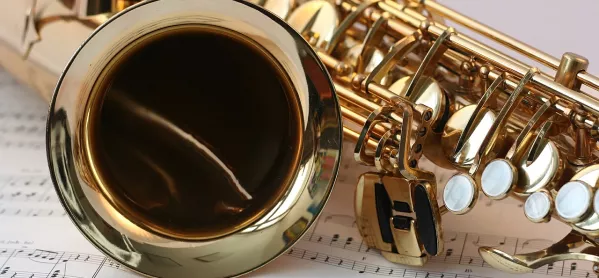Charging pupils for music tuition is “unfair” and deepening inequality, MSPs have heard.
Costs vary across the country, with free tuition in some council areas while others, such as Clackmannanshire, charge more than £500.
The Scottish Parliament’s Education and Skills Committee is holding an inquiry into music tuition in schools and took evidence from two members of the Scottish Youth Parliament yesterday.
Alice Ferguson, who represents Linlithgow, set up a campaign in 2017 to save free music tuition in her council area of West Lothian, where pupils are now charged £328 a year.
She told MSPs the cost covers a weekly 25-minute lesson, which can be with up to 10 pupils, and membership of school bands and other ensembles - which she said works out as £10 per 25-minute lesson.
She said the price is “absurd” as less expensive private one-on-one lessons are available, at 30 minutes for £30.
Pupils who qualify for free school meals are exempt from charges, but Ms Ferguson said this does not help those just above the threshold who are now missing out on music tuition as a result of cost.
“I know a lot of my friends have now dropped out of music just because they can’t afford it, which is ridiculous,” she said.
“By introducing a charge for instrumental service, you are denying young people this opportunity depending on how much money they have, which just shouldn’t be the case.
“And in West Lothian when you’ve gone from a free service to charging it’s unfair, and it’s not right to deny young people these opportunities.”
She added: “The council are wanting to reduce inequality but by charging for music they are increasing inequality.”
She said being given free music tuition in the past from primary school onward had helped her make new friends, gain confidence and build skills.
Ms Ferguson told the committee: “It is the privileged that are getting to do music now, which is going back to Victorian times where only the elite get to do violin and only the elite get to do music.”
The committee also heard from Catherine Mackie, MSYP for Glasgow Southside, who echoed Ms Ferguson’s concerns.
She said: “The benefits are there - mental health improves, you end up with more friends if you join a band or an orchestra, even grades can improve…it seems like quite a clear solution to keep music free for everyone.”
Ms Mackie said without being given the opportunity to learn violin from primary school she would not have been able to sit senior secondary school exams in music.
“Without learning to play an instrument, who knows what potential talent we might be missing out on? We could have the next Bach, the next Nicola Benedetti, the next anyone in our schools,” she added.
“It’s completely imperative that you’ve got to have music free for everyone because cost shouldn’t be a barrier.
“You can’t put a price on music.”
It has also been reported this week that the number of music instructors working in Scottish schools has plummeted to an all-time low of 667, down from 1,043 in 2007. This trend has led to fears that school music is facing “extinction”.
In May, first minister Nicola Sturgeon said that cuts must not stop poor pupils learning musical instruments.




